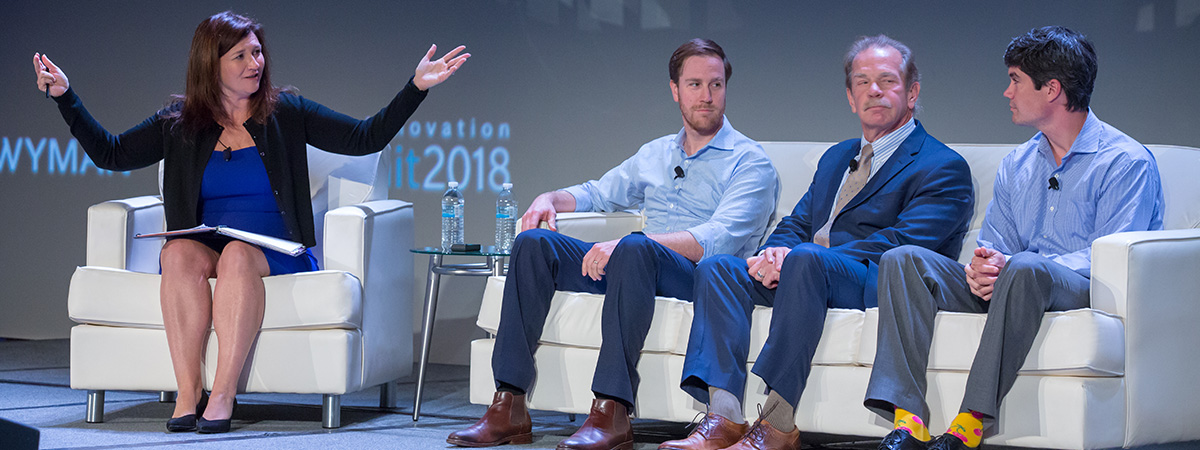Food doesn’t simply impact health – it creates (or destroys) it. Yet we still treat food as a “public health” issue, a “social determinants” issue, and a “lifestyle” issue. How can we make food as central to care delivery as antibiotics or statins? And how can we accelerate this mindset shift by taking advantage of recent regulatory changes such as coverage of food under Medicare Advantage?
In this video from the 2018 Health Innovation Summit, Jason Langheier, Founder and CEO of Zipongo, Randy Oostra, President and CEO of ProMedica, and Marcus Osborne, VP of Health and Wellness Transformation at Walmart, discuss the importance of the food as medicine movement.
Video Highlights
- Four of the five leading causes of death are linked to obesity. (3:58)
- 40 percent of all cancer diagnoses are associated with being overweight or obese. (4:29)
- There are a lot of different stakeholders in society that have different roles to play in how you think about the obesity epidemic. (5:20)
- Obesity is not the problem, it's hunger. (7:03)
- We came to the realization eight or nine years ago that hunger is a major health issue in our country, and we decided to politicize it, and we have big issues with having people know how to eat healthy. (7:08)
- We [ProMedica] begin to screen people for food insecurity when they hit our offices...and talk to them about food insecurity and needs. A physician [at ProMedica] can make a prescription to a food pharmacy where they can get specific tailored meals for their needs and their income. (7:20)
- The typical method from a provider lens was, "Let me give you the food guide pyramid and plate today and go home and read these pamphlets and then come back, eat healthier, and you'll be better." (9:05)
- The real challenge is the food swamp. There are so many choices -- hundred and thousands of SKUs. And not by any evil intent, it's just the way the industry has evolved. People in the food industry are just trying to market their product and get it sold. (10:08)
- Restriction of choice doesn't actually change consumer behavior. (11:33)
- Bananas are the number one selling item in a Walmart. (13:04)
- We didn't tell anybody we were reducing the price of apples, we just did. Within weeks of Walmart lowering the price of apples, they went from not even the top ten to the second most purchased item in stores. (13:50)
- We need to make things feel like the best value in the market. (14:58)
- Retailers are now selling more ounces of water than sugared water today. That's a trend no one is talking about. (18:00)
- The merging of the digital and physical environment will actually define not just retail but healthcare...why do I need to create a special aisle [for patients’ needs]? Why don't I let technology convert the store for you? (25:21)
- CMS released a Call Letter that said Medicare Advantage plans can choose to pay for food for patients after discharge from a hospital. (27:47)


